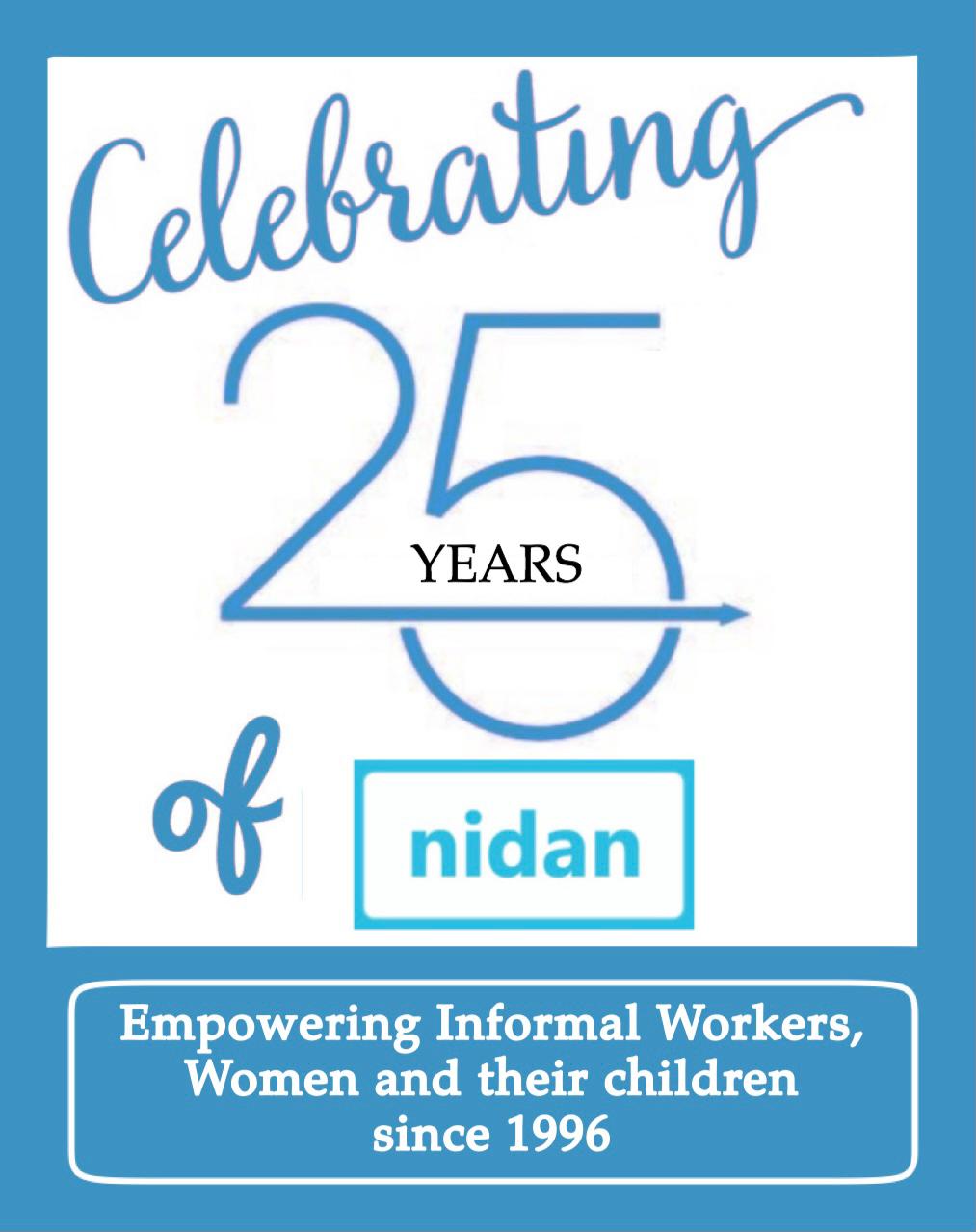DEMAND 1: We are Workers, Recognize and Register Us.
After Independence all these years informal workers in India are a being held as beneficiaries of schemes. Now Government of India enacted new 4 codes; which in the year 2020, Social Security Code was enacted by the central government which provisions social security for informal workers as a right for informal workers.
When workers get registered; they get identified, recognized, and entitled to their employment by the State and central government. Through this registration, informal workers rights can be recognised through Social Security.
In 2019, when the Covid-19 pandemic affected globally including all citizens of this country. The pandemic has adversely affected all businesses including small-scale businesses. One of the groups which are severely affected is Migrant workers, when the National Lockdown was immediately declared in March 2020, there was a huge population of migrant labours returning to their natives, due to unemployment and poverty. They started walking on highways without food for several hundreds and thousands of kilometres with facing several untold issues, many migrant labours deceased on the way back on hunger. Supreme Court relied on Central Governments for the data and understood no states had proper data over the workers, then Supreme Court pointed one of the major reasons for this massacre was the insufficiency of data. The Supreme Court of India (SC) directed the Central Government and the State Governments to complete the registration process of unorganized workers so that they can avail the welfare benefits given under various government schemes and accountability for the informal workers can be ensured.
By the Order of the Supreme Court of India, the Ministry of Labour & Employment has developed a portal named E-shram for creating a National Database of Unorganized Workers including prime recognition of their employability and extending the benefits of the social security schemes to them.
According to recent data; 28.41 crore population has registered until now. The E-shram portal registration provides Accidental and permanent disability Insurance for 1 year and legal recognition across the nation. The registration can be done through Self-registration on Portal/Common Service Centre.
Why register the informal workers: Social Security Code 2020 provisions registering all unorganized workers under the code. The 2nd Labour Commission shows more than 93% of the workforce gains their income from the ‘Informal sector. It is important that all workers should be registered, so in emergency or a pandemic a speedy response can be demanded to the government for workers to be recognised and subsidized in the period of emergence or pandemic.
India is one of the 193 countries that signed in Paris Agreement on 22 April ensuring SDG (Decent Work and Economic Growth). The UN SDG 8 declares: 8.8 Protect labour rights and promote safe and secure working environments for all workers, including migrant workers, in particular women migrants, and those in precarious employment.
The Government is providing benefits linked with this portal; recognition of workers across the nation, Accidental Insurance coverage through PMSBY, Accidental death & Permanent/Partial disability, etc.
| For Self- Registration of E-shram – https://eshram.gov.in/ | Register through Common Service Centre. |
Demand of Registration of Workers:
- Registration of workers should not be based on age concentration.
- Fix a minimum Charge to recognise and entitle us to access all social security provisions.
- Eshram registration for workers should be entitled to Identity of employment.
- Stabilize the Web Page of the E-shram Portal and accessibility of registration through Mobiles, Tablets & PCs.
- Enable the data to the state governments for developing and linking schemes for informal workers.
- State and Central Government should share equal responsibility for the registration of a worker.
- By 2030, achieve full and productive employment and decent work for all women and men, including for young people and persons with disabilities, and equal pay for work of equal value.
